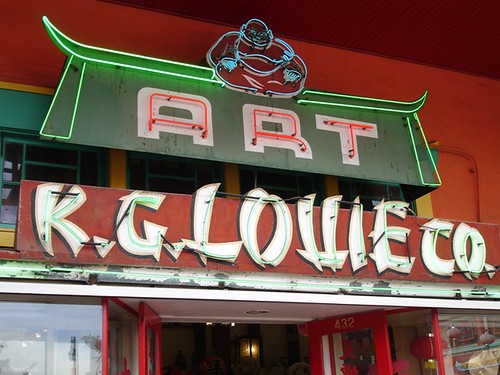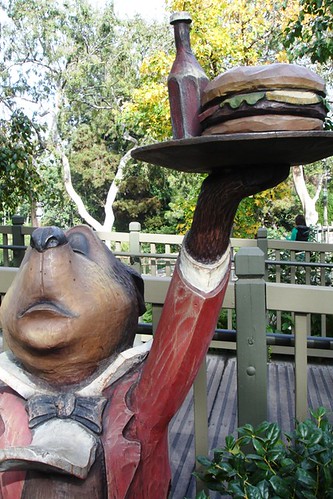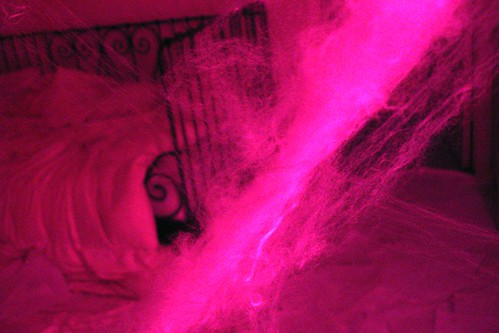The only times she's good is when she keeps her mouth shut and looks mysterious.
Wednesday, October 28, 2009
The Blue Dahlia, p. 134 (Afterword)
About "Miss Moronica Lake:"
Saturday, October 24, 2009
The Blue Dahlia, p. 28
Just don't get too complicated, Eddie. When a guy gets too complicated he's unhappy. And when he's unhappy--his luck runs out... .
Thursday, October 22, 2009
Chandler: [John Houseman: "Lost Fortnight" (The Blue Dahlia, pg. xxi)]
I have had a lot of fun with the American language; it has fascinating idioms, is constantly creative, very much like the English of Shakespeare's time, its slang and argot is wonderful, and so on.
Wednesday, October 21, 2009
John Houseman: "Lost Fortnight" (The Blue Dahlia, pg. xi)
...the long thin line of La Cienega (before it became the Fifty-seventh Street of the West) stretching directly ahead...
Labels:
La Cienega,
Los Angeles,
metaphor,
names,
street,
west
Saturday, October 17, 2009
Farewell, My Lovely, 251
At the end he thought and then spoke slowly and what he said had wisps of fog clinging to it, like the beads on a mustache. Maybe that made it seem wiser than it was, maybe not.
Friday, October 16, 2009
"Bay City Blues," p. 241 (from Killer in the Rain, 2nd printing)
The road twisted, dipped, soared along the flank of the foothills, a scatter of lights to the northwest and a carpet of them to the south. The three piers seemed remote from this point, thin pencils of light laid out on a pad of black velvet.
Thursday, October 15, 2009
"Bay City Blues," p. 242 (from Killer in the Rain, 2nd printing)
The lobby--they called it a foyer--looked like an MGM set for a night club in the Broadway Melody of 1980.
"Bay City Blues," p. 264 (from Killer in the Rain, 2nd printing)
It was cold up their in the hills, but the air was clear and the stars were like pieces of polished chromium.
Wednesday, October 14, 2009
"Bay City Blues," p. 278 (from Killer in the Rain, 2nd printing)
It looked like somebody was going to open up the Austrian Case wide enough for the mayor to think it was a new boulevard and come out with a bunch of flowers and make a speech.
(sounds like some other mayor I know, eh?)
"Mandarin's Jade" p.170 (from Killer in the Rain, 2nd printing)
--and the general look of a guy who would wear white flannel suit with a violet satin scarf inside the collar.
Tuesday, October 13, 2009
"Bay City Blues," p. 238 (from Killer in the Rain, 2nd printing)
He giggled from sudden strain and nervousness and shock--very little from amusement.
Tuesday, February 24, 2009
The Notebooks of Raymond Chandler, p. 74
I am no superb technician or inexorable scene-squeezer like Billy Wilder. I am the man who produces the raw material on which the superb technique can be exercised, the man who writes the scenes that wait to be squeezed. If I were more, I should also be less, and the more I should be would, from my point of view, not be worth the less I should be.
Monday, February 23, 2009
The Notebooks of Raymond Chandler, p. 73
Would it surprise...that the screenwriter regards the camera as his principal character, and that if he did not write a part for that character he would not be writing a screenplay? He doesn't write in camera movements for the benefit of the director or the cameraman, but for his own benefit: so that he may have some knowledge of the acting length of the script; so that he may leave out of his dialogue those effects which the camera can better achieve without words; so that he may have some feeling for the rhythm and pace and movement of the film across the screen. The writer knows perfectly well that the director will not follow his camera directions literally.
Sunday, February 22, 2009
The Notebooks of Raymond Chandler, p. 70
There is probably no facet of American life which you can accurately portray, but you can photograph Clark Gable in his underpants, you can dissolve out on an adulterous kiss, and you can be more obscene by implication than the forthright smut talk of soldiers in a barrack room. The terminal result of this straightjacket Grundyism is intellectual lethargy and paralysis of the imagination. What's the use of thinking up strong dramatic stories or scenes when you know in advance they are going to turn out as tame as Prudence Penny's recipe for baked custard?
Saturday, February 21, 2009
The Notebooks of Raymond Chandler, p. 69
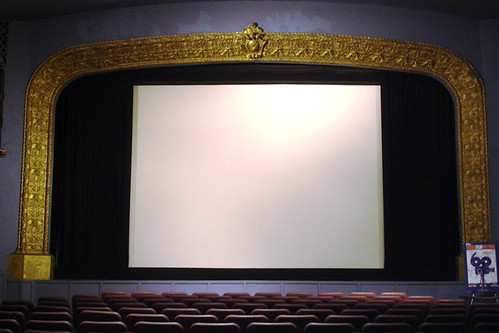
You can't make good pictures without good screenplays, and you can't get good screenplays from people who do not know how to write them, technically speaking, but have been debauched and spoiled by Hollywood to such an extent that technique is all they have left. Technique alone is never enough. You have to have passion. Technique alone is just an embroidered pot holder.
Friday, February 20, 2009
The Notebooks of Raymond Chandler, p. 69
The dilemma of the critic has always been that if he knows enough to speak with authority, he knows too much to speak with detachment.
Thursday, February 19, 2009
The Notebooks of Raymond Chandler, p. 29
"Would you convey my compliments to the purist who reads your proofs and tell him or her that I write a sort of broken-down patois which is something like the way a Swiss waiter talks, and that when I split an infinitive, God damn it, I split it so it will stay split, and when I interrupt the velvety smoothness of my more or less literate syntax with a few sudden words of bar-room vernacular, that is done with the eyes wide open and the mind relaxed but attentive."
There's also a really great poem that follows this that is totally worth reading, worth copying, worth hanging up in your room. Really, it's great. Go read it! It's too long for me to type up here.
The Notebooks of Raymond Chandler, p. 19
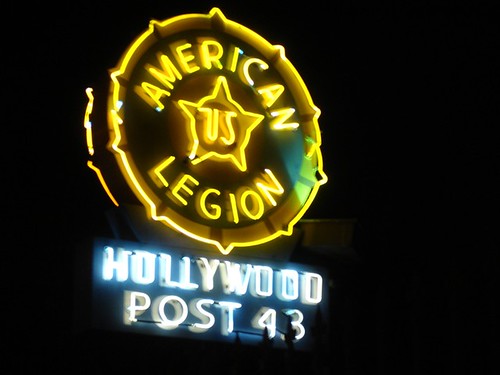
The keynote of American civilization is a sort of warm-hearted vulgarity. The Americans have none of the irony of the English, none of their cool poise, none of their manner. But they do have friendliness. Where an Englishman would give you his card, an American would very likely give you his shirt.
Labels:
America,
civilization,
English,
friendliness,
irony,
vulgarity
The Notebooks of Raymond Chandler, p. 7
Saturday, January 17, 2009
Farewell, My Lovely, 271
She hung up, leaving me with a curious feeling of having talked to somebody that didn't exist.
Farewell, My Lovely, 242
Farewell, My Lovely, 190
Farewell, My Lovely, 188-189

'Okey, it's a nice town. So is Chicago. You could live there a long time and not see a Tommy gun. Sure it's a nice town. It's probably no crookeder than Los Angeles. But you can only buy a piece of a big city. You can buy a town this size all complete, with the original box and tissue paper. That's the difference. And that makes me want out.'
Labels:
Chicago,
corruption,
gun,
Los Angeles,
Santa Monica
Farewell, My Lovely, 160 & 164
'Listen, Hemingway, don't repeat everything I say,' I said. ...
'A gag,' I said, 'An old, old gag.'
'Who is this Hemingway person at all?'
'A guy that keeps saying the same thing over and over until you begin to believe it must be good.'
Farewell My Lovely, p. 65

Twenty minutes' sleep. Just a nice doze. In that time I had muffed a job and lost eight thousand dollars. Well, why not? In twenty minutes you can sink a battleship, down three of four planes, hold a double execution. You die, get married, get fired and find a new job, have a tooth pulled, have your tonsils out. In twenty minutes you can even get up in the morning. You can get a glass of water at a night club--maybe.
Subscribe to:
Posts (Atom)
